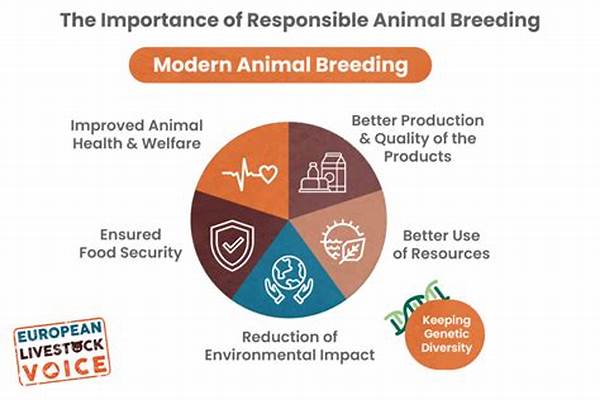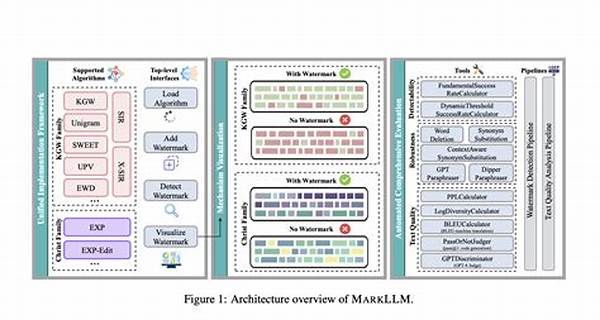Hey there, lovely readers! Today, we’re diving into a topic that’s crucial but often flies under the radar—responsible animal study practices. Whether you’re a student, a researcher, or just curious about the subject, understanding the importance of ethical animal practices can make a world of difference. So grab your favorite snack, sit back, and let’s chat about this important topic.
Read Now : Free Video Watermarking Software Solutions
Understanding Responsible Animal Study Practices
First things first, why should we care about responsible animal study practices? Well, friends, it’s all about balancing our need to advance science with the ethical treatment of animals. The key is not just in conducting research but in doing it responsibly. This means minimizing distress and harm to animals, ensuring that the research is indeed necessary, and that no viable alternatives are available. It’s about showing a little bit of kindness and a whole lot of respect to our furry (or not so furry) co-sharers of this planet.
By adopting responsible animal study practices, researchers are tasked to ensure that the studies they conduct do not cause unnecessary suffering. Protocols like the 3Rs (Replacement, Reduction, Refinement) offer a framework to guide ethical research. Replacement encourages using non-animal methods whenever possible, Reduction focuses on using the fewest number of animals to obtain reliable data, and Refinement mandates altering procedures to minimize pain and distress. When all is said and done, responsible animal study practices aren’t just academic jargon; they’re a commitment to better scientific integrity and a kinder planet. Isn’t that something worth striving for?
The Core Principles of Responsible Animal Study Practices
1. Ethical Guidelines
Following ethical guidelines is non-negotiable. Without them, we risk the credibility of scientific endeavors and the welfare of animals.
2. Utilizing the 3Rs
Aim to Replace, Reduce, and Refine whenever you’re dealing with animals in studies. It’s the golden rule!
3. Ensuring Necessity
Confirm that animal use is truly essential for the study. If not, seek alternatives!
4. Alleviating Stress
Make sure animals are as stress-free as possible. They deserve calm environments too.
5. Transparency
Be open about study methods. Responsible animal study practices thrive on transparency.
Implementing Responsible Animal Study Practices
To effectively implement responsible animal study practices, one must engage stakeholders, including researchers, ethical committees, and sometimes the public. The involvement of these diverse groups can help naturally develop an ethical approach to scientific study. At educational institutions and research facilities, training programs and workshops can disseminate essential knowledge and protocol related to animal welfare.
Moreover, technology plays a significant role in responsible animal study practices. Nowadays, innovative virtual models and computer simulations often provide alternatives that can drastically reduce the need for actual animal subjects. Encouraging their use champions both scientific progress and ethical responsibility. In short, implementing responsible animal study practices goes beyond just talking the talk; it is about transforming words into actions and open collaborations that help the cause.
Challenges in Responsible Animal Study Practices
1. Balancing Ethics and Science
Finding a middle ground between ethical considerations and scientific progress can be complex.
2. Lack of Alternatives
Sometimes, alternatives to animal models are not available, posing a challenge.
3. Funding and Resources
Implementing responsible practices needs resources, which’re often scarce.
4. Training Deficiencies
Read Now : Visual Storytelling Through Photo Editing
Insufficient training can lead to lapses in responsible animal study practices.
5. Regulatory Hurdles
Navigating through varied regulatory landscapes demands expertise and patience.
6. Technological Limitations
Even with tech, not all models replace animal studies adequately.
7. Public Perception
Misunderstanding of the need for some animal studies can impact research support.
8. Cultural Differences
Diverse values around the world affect how responsibility is perceived in animal studies.
9. Scientific Limitations
Animals sometimes remain indispensable due to limitations in understanding.
10. Communication Gap
Bridging communication gaps between stakeholders and the public is vital for collective progress.
The Role of Researchers in Responsible Animal Study Practices
Hey, researchers, this one’s for you! Your role in advancing responsible animal study practices cannot be overstated. When you plan a study, think Dr. Dolittle—empathetic and understanding, while adhering strictly to ethical standards. The research realm thrives on your commitment to delivering impactful science without compromising on animal welfare. From drafting proposals to advancing methodologies, your every step should mirror responsible animal study practices. Explore that ethical rabbit hole and make sure it’s filled with humane decision-making processes. Testing and trials? Keep ’em transparent and humane, ‘cause openness is what builds scientific trust. And hey, remember—when in doubt, reach for guidance; there’s no harm in asking for a roadmap!
Embracing Modern Slang: Responsible Animal Study Practices
Yo, folks, ever wonder what the fuss is about responsible animal study practices, eh? Think of it as treating study critters right while we bring science to the next level. It’s all about bein’ woke and knowing our boundaries, right? So when peeps say use the 3Rs, they mean swap out animals with dope tech, and cut down numbers whenever it’s chill. Keepin’ it real in the lab is key!
Why’s it matter? ‘Cause nobody wants bad karma, and we oughta show some love to our planet’s creatures. No cap, responsible animal study practices ain’t going outta style—they’re the real MVPs in today’s research game. So team up, level up, and let’s own it while respecting our fuzzy pals. Sound good?
Summing Up: Responsible Animal Study Practices
Let’s wrap this up, folks! Responsible animal study practices are important, no ifs or buts. It’s all about ensuring that animals—and by extension, scientific integrity—get the respect and fairness they deserve. As we’ve discussed, the 3Rs serve as a foundational principle that guides researchers towards adopting more ethical methods. But it doesn’t end there; it’s a constant learning curve and an evolving practice that needs our ongoing commitment.
Embracing responsible animal study practices requires us to be proactive, engaging in continuous dialogue and ethical reflection. Whether through workshops, tech innovations, or stakeholder engagements, every little effort contributes to a bigger cause. As we advance in science, let’s not forget the values that root us deeply to our mission: to better the world responsibly. Is there a better way to tread forward? I reckon not.



